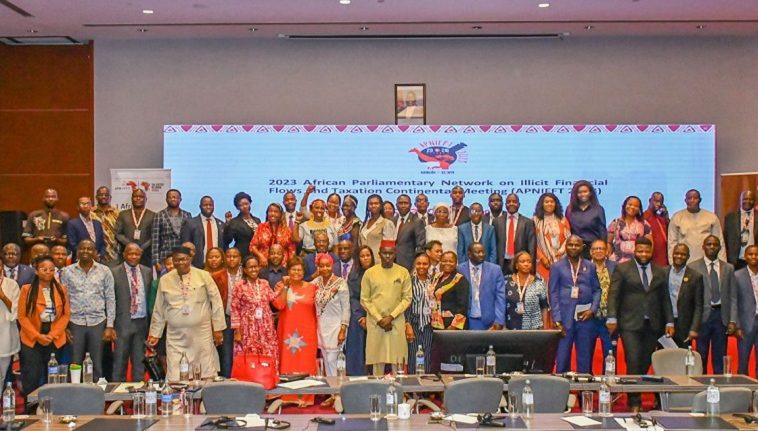Global trade policies have had a profound impact on Africa’s economic growth, shaping both opportunities and challenges for the continent. The relationship between Africa and the global market is influenced by a variety of trade agreements, tariffs, and international trade rules that can either bolster or hinder economic development.
The African Growth and Opportunity Act (AGOA), enacted by the United States in 2000, has been a significant trade policy impacting Africa. This legislation provides duty-free access to the U.S. market for thousands of products from eligible Sub-Saharan African countries. As a result, AGOA has promoted economic growth, created jobs, and increased the competitiveness of African exports.
However, with AGOA set to expire in 2025, there is uncertainty about its future. To ensure continued benefits for African economies, discussions are underway on whether to renew or replace the policy.
The European Union’s Economic Partnership Agreements (EPAs) aim to promote trade and development between the EU and various African regions. While these agreements have granted some African countries improved access to European markets, they have also been met with criticism.
Concerns surrounding EPAs include the potential harm to local industries and the unequal benefits, which often favour more developed economies. This has led to concerns that EPAs may perpetuate dependency rather than fostering true economic independence for African nations.
The World Trade Organisation (WTO) plays a crucial role in shaping global trade rules, with its policies significantly impacting African nations. A key issue is the presence of agricultural subsidies in developed countries, which creates an uneven playing field for African farmers, making it difficult for them to compete globally. Ongoing negotiations and reforms within the WTO are therefore critical for addressing these imbalances and promoting a more equitable trading environment.
Africa’s Share in Global Trade
Data from the World Economic Forum reveals Africa accounts for just 2% of global trade. And only 17% of African exports are intra-continental, compared with 59% for Asia and 68% for Europe. The potential for transformation across Africa is therefore significant.
It is estimated that Africa could annually be generating US$21.9 billion more from exports to the world. This limits the continent’s economic growth and ability to lift millions out of poverty.
Outlook of Aid for Trade in Africa
Financial and technical assistance (AfT) is a crucial tool for developing countries to enhance their participation in international trade. A study found that increased AfT disbursements to African economies led to significant reductions in trade costs.
Between 2006 and 2022, the initiative disbursed a total of $647.4 billion to 146 developing countries. In 2022 alone, the initiative provided US$51.1 billion in financial assistance to support 178,141 projects, benefiting developing countries.
with sub-Saharan Africa receiving 29.2% and South and Central Asia receiving 31.4% of these commitments. However, despite AfT playing a significant role in international trade, it had no discernible impact on shaping sub-Saharan African countries’ aggregate or bilateral trade levels from 1995 to 2010.
Africa’s Game Changer
The African Continental Free Trade Area (AfCFTA) has the potential to transform the continent’s economic prospects by becoming the largest global free trade area in terms of participating countries. As a model of cross-border cooperation in an era of growing isolationism, the agreement aims to achieve its many benefits. However, it must overcome implementation challenges to realise its full potential.
The AfCFTA pact will create the largest free trade area in the world, measured by the number of countries participating. Connecting 1.3 billion people across 55 countries with a combined gross domestic product (GDP) valued at $3.4 trillion, the pact comes at a time when much of the world is turning away from cooperation and free trade.
The African Continental Free Trade Area (AfCFTA) is expected to boost Africa’s exports by $560 billion, with a significant increase in manufacturing exports.
It aims to revolutionise trade on the continent by reducing all trade costs and integrating Africa further into global supply chains. This will be achieved by eliminating 90% of tariffs, focusing on outstanding non-tariff barriers, and creating a single market with free movement of goods and services.
According to a recent report by the World Bank, the pact will boost regional income by 7%, or $450 billion, speed up wage growth for women, and lift 30 million people out of extreme poverty by 2035. Wages for both skilled and unskilled workers will also be boosted by 10.3% for unskilled workers and 9.8% for skilled workers.
The African Continental Free Trade Area (AfCFTA) underscores the African Union’s growing commitment to using trade as a powerful tool to combat poverty. This connection is increasingly recognised, and as WTO Director General Ngozi Okonjo-Iweala noted, “Trade can be a force for good, and when utilised effectively, it can help lift millions out of poverty and bring about shared prosperity.”
While global trade policies have provided African countries with significant opportunities for economic growth, they have also exposed vulnerabilities. Africa’s ongoing efforts to strengthen its own trade frameworks, like AfCFTA, and to engage more effectively in global trade negotiations are key to unlocking sustainable economic growth in the future.




